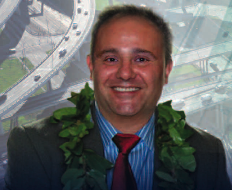Bjørn Lomborg is the author of The Skeptical Environmentalist and Cool It, head of the Copenhagen Consensus Center, and an adjunct professor at Copenhagen Business School. I trust his analyses much more than the "data free" propaganda of the Sierra Club and the Blue Plant Foundation of Hawaii. Here is a summary in his words of his latest assessment titled Seeming Green.
- Danish politicians – like politicians elsewhere – claim that a green economy will cost nothing, or may even be a source of new growth. Unfortunately, this is not true. Globally, there is a clear correlation between higher growth rates and higher CO2 emissions. Furthermore, nearly every green energy source is still more expensive than fossil fuels, even when calculating pollution costs. We do not burn fossil fuels simply to annoy environmentalists. We burn them because fossil fuels have facilitated virtually all of the material advances that civilization has achieved over the last few hundred years.
- Politicians in Denmark and elsewhere argue as if this were no longer true: a transition to a green economy will create millions of new “green jobs.” But, while green-energy subsidies generate more jobs in green-energy sectors, they also displace similar numbers of jobs elsewhere.
- Many politicians are drawn to photo opportunities and lofty rhetoric about “building a green economy.” Unfortunately, the green-energy policies currently being pursued are not helping the environment or the economy. More likely, they will lead to greater emissions in China, more outsourcing to India, and lower growth rates for the well-intentioned “green” countries.








